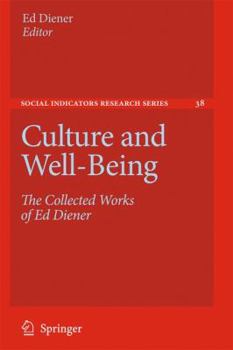Culture and Well-Being: The Collected Works of Ed Diener
material boundaries capture cultural effects? The articles contained in this volume offer initial answers to most of these questions. The culture and well-being questions are of fundamental importance to understanding in the entire eld and to scienti c knowledge in the behavioral s- ences as a whole. Unless we understand what is universal and what is speci c, we cannot hope to understand the processes governing well-being. Unfortunately, our scienti c knowledge in most behavioral science elds, including the study of we- being, has been built on a narrow database drawn from westernized, industrialized nations. This means that we have only a little knowledge of whether our ndings are generalizable to all peoples of the globe and to universal human psychol- ical processes. Fortunately, during the last decade my students and I, as well as others working in this area, have rapidly expanded our knowledge of well-being vis-a-vis culture. The rst attempt to summarize the ndings in this area came in 1999 with Culture and Subjective Well-Being, a book edited by Eunkook Suh and Diener. The current volume represents a renewed effort to give a broad overview of major ndings in this area and to point to the important directions for future research. Composition of This Volume I am very pleased with the articles presented in this volume because I believe that they represent true advances in our fundamental understanding of subjective we- being.
Format:Paperback
Language:English
ISBN:9048123518
ISBN13:9789048123513
Release Date:June 2009
Publisher:Springer
Length:290 Pages
Weight:0.20 lbs.
Dimensions:0.6" x 6.1" x 9.2"
Customer Reviews
0 rating





